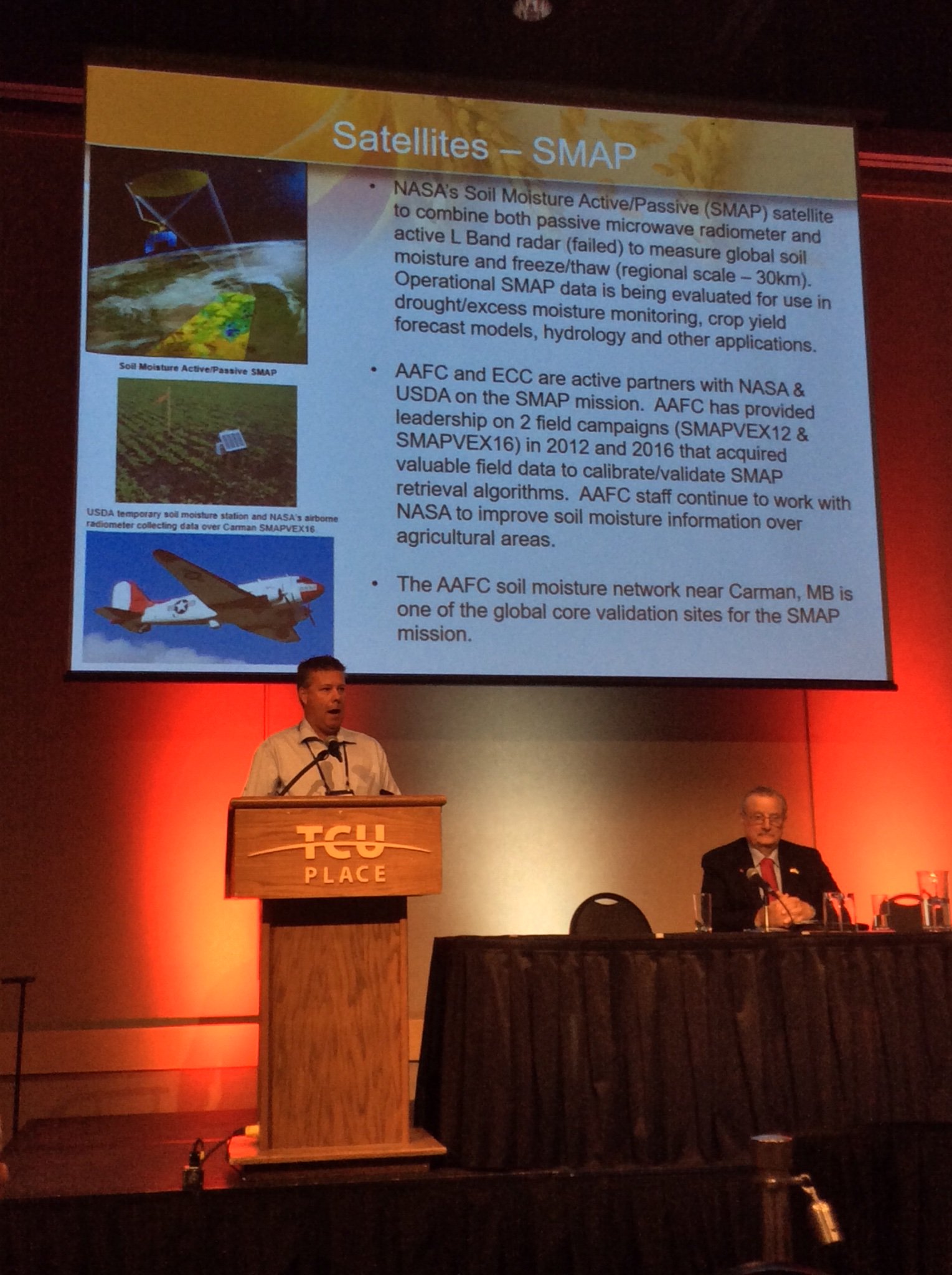Irrigation conference stresses need for ag innovation & partners
August 15, 2018
International Commission on Irrigation and Drainage (ICID) convened in the Canadian farmland to discuss effective water resource management and explore innovation to respond to climate change.
The conference addressed the central challenge of adaptation and resiliency in a variable and changing climate, in order to sustain agri-water management with limited water resources.
Seeking to understand and identify solutions for broader regional and continental water management, technical sessions addressed floods and droughts, water security, and effective irrigation practices for food production.
As Director of the Global Water Futures Program of the University of Saskatchewan, Dr. John Pomeroy suggested establishing a ‘water security strategy to prepare and achieve greater resiliency in addressing (present and future) challenges.’
Dr. Peter McCornick, Executive Director of the Daugherty Water for Food Global Institute at the University of Nebraska and Maurice Molony, Executive Director of the Global Institute for Food Security, spoke about increasing food production and crop growth technology for a growing world population.
The following notes highlight key themes common to several presentations and delegate conversations:

Government support from federal and provincial levels are critical for water infrastructure development and rehabilitation as well as cost-sharing between private irrigation organizations and public entities who want to minimize water loss.
A greater need for and the availability of more accurate and more precise precipitation forecasts exists to meet agricultural demands amid changing extreme weather patterns and expected population growth.
Expanding soil moisture monitoring will better inform agricultural water management practices as long, cold winters are followed by increasingly shorter snowmelt periods in similar cold-region climates. While the hydrology hasn’t changed, the timing of certain hydrological processes has.
Timely irrigation and transparent partnerships are required of transboundary water management if economic growth is expected among provincial, watershed and basin-wide members.
More than 500 delegates representing 41 countries were hosted by the Canadian Water Resources Association (CWRA), the Canadian Committee for Irrigation and Drainage (CANCID), and the City of Saskatoon.